Introduction
With all the extraordinary benefits of a plant based diet, why doesn't everyone enjoy such a rich & colorful fare? Perhaps many of us remain unaware of the beauty enhancing, wellbeing promoting, happiness fostering and good tasting qualities of such a refreshing lifestyle.
Here, we present a plethora of scientifically supported information; demonstrating the innumerable health benefits conferred by including predominantly plants in our meals.
1. Beauty
Enjoy a beautiful, radiant, youthful complexion due to the splendid performance of nourishing, protective and beautifying phytonutrients (14,15,18,24-26,28,50-59,86,87).
2. Heart Healthy - Truly Wealthy
Low in cholesterol, high in protective phytonutrients; plants help us own a strong heart, promoting longevity and superior cardiovascular performance; all about the blood flow (15,19,21,22,27,32,33,37-44,46,105).
3. Bowel Performance
Reduce your stay in the bathroom; strong gut performance; the discomforts and dangers of constipation, indigestion and hemorrhoids are need less (9,32,61-72).
4. Healthy Blood Pressure
Avoid suddenly, shockingly, falling dead prematurely; disappointing friends and relatives (6,12,33-35,37-44,47,60,105).
5. Effortless Weight Management
Forget about dreadful diets and weird fads, simply eat till your heart’s content, wholesome plant foods are mostly high in fiber and water content, whilst low in calories (4,5,10,11,15,17,96-98,105).
6. Anti-Ageing
Due to the power of active antioxidants; reducing cellular stress, which damages DNA and other vital components, plants provide many useful tools for the cells to use to prevent degeneration and premature ageing. Furhermore, enhancing the efficacy of the portals of elimination and detoxification to prevent accumulation of ageing inducing waste (14,15,18,25,99-104,107).
7. Endurance, Strength & Recovery
Optimize athletic abilities with plant foods. Increased blood flow; optimizing oxygen delivery to cells; increasing muscle performance, whilst repair and regeneration of damaged muscle tissue is enhanced, and inflammation is decreased. Plant foods are ideal sustenance for any athlete (73-85,88-91).
8. Pain Less
Avoid needless suffering; minimize your chances of attracting any dis-ease with plant foods, they will help you reduce inflammation, foster regeneration and promote expedient healing (6,7,8,23,36,45).
9. Happiness and Mental Health
Enjoy life forever-more by experiencing elevated moods (2-5,33,34) and mental health throughout the course of life (30,92,93,106).
10. Vitality
Without dis-ease and pain, with an abundance of oxygen and cellular protection; physical constrictions dissolve, symptoms of ageing disappear, beauty and radiance naturally appear, boosting our confidence, removing stress and needless suffering, whereby, at any age, we may enjoy vitality and a resourceful, adventurous, mentality !
References
1) Vegetarian Diets and the Incidence of Cancer in a Low-risk Population
(Yessenia Tantamango-Bartley, Karen Jaceldo-Siegl, Jing Fan, and Gary Fraser, 2013)
2) Vegetarian diets are associated with healthy mood states: a cross-sectional study in Seventh Day Adventist adults
(Bonnie L Beezhold, Carol S Johnston and Deanna R Daigle, 2010)
3) Restriction of meat, fish, and poultry in omnivores improves mood: A pilot randomized controlled trial (Bonnie L Beezhold and Carol S Johnston, 2012)
4) A Worksite Vegan Nutrition Program Is Well-Accepted and Improves Health-Related Quality of Life and Work Productivity (Katcher H.I. · Ferdowsian H.R. · Hoover V.J. · Cohen J.L. · Barnard N.D. , 2010)
5) Vegetarian diet in type 2 diabetes – improvement in quality of life, mood and eating behaviour (H. Kahleova, T. Hrachovinova, M. Hill, T. Pelikanova, 2013)
6) A Comparison of Treating Metabolic Acidosis in CKD Stage 4 Hypertensive Kidney Disease with Fruits and Vegetables or Sodium Bicarbonate Nimrit Goraya, Jan Simoni, Chan-Hee Jo, Donald E. Wesson, 2013)
7) A vegan diet free of gluten improves the signs and symptoms of rheumatoid arthritis: the effects on arthritis correlate with a reduction in antibodies to food antigens (I. Hafström, B. Ringertz, A. Spångberg, L. von Zweigbergk, S. Brannemark, I. Nylander, J. Rönnelid, L. Laasonen and L. Klareskog, 2000)
8) Effects of a Very Low-Fat, Vegan Diet in Subjects with Rheumatoid Arthritis (John McDougall, Bonnie Bruce, Gene Spiller, John Westerdahl, and Mary McDougall, 2004)
9) A vegan or vegetarian diet substantially alters the human colonic faecal microbiota (J Zimmer, B Lange, J-S Frick, H Sauer, K Zimmermann, A Schwiertz, K Rusch, S Klosterhalfen and P Enck, 2012)
10) Type of Vegetarian Diet, Body Weight, and Prevalence of Type 2 Diabetes (Serena Tonstad, Terry Butler, Ru Yan, and Gary E. Fraser, 2009)
11) Vegetarian Dietary Patterns Are Associated With a Lower Risk of Metabolic Syndrome The Adventist Health Study 2 (Nico S. Rizzo, Joan Sabaté, Karen Jaceldo-Siegl, and Gary E. Fraser, 2011)
12) Vegetarian diets and blood pressure among white subjects: results from the Adventist Health Study-2 (Betty J Pettersena, Ramtin Anousheha, Jing Fana, Karen Jaceldo-Siegla and Gary E Frasera, 2012)
13) The effect of raw vegetable and fruit intake on thyroid cancer risk among women: a case–control study in South Korea(Su Kyoung Junga, Kirang Kima, Kyung Taea, Gu Konga and Mi Kyung Kima, 2012)
14) Plants, Diet, and Health Annual Review of Plant Biology (Cathie Martin, Yang Zhang, Chiara Tonelli, Katia Petroni, 2013)
15) Long-term vegetarians have low oxidative stress, body fat, and cholesterol levels(Mi Kyung Kim, Sang Woon Cho, and Yoo Kyoung Park, 2011)
16) Vegetarian diets and incidence of diabetes in the Adventist Health Study-2 (Tonstad S, Stewart K, Oda K, Batech M, Herring RP, Fraser GE, 2011)
17) A Two-Year Randomized Weight Loss Trial Comparing a Vegan Diet to a More Moderate Low-Fat Diet (Gabrielle M. Turner-McGrievy, Neal D. Barnard, Anthony R. Scialli, 2007)
18) The Production of p-Cresol Sulfate and Indoxyl Sulfate in Vegetarians Versus Omnivores (Kajal P. Patel, Frank J.-G. Luo, Natalie S. Plummer, Thomas H. Hostetter, Timothy W. Meyer, 2012)
19) Relationship of carotid intima-media thickness and duration of vegetarian diet in Chinese male vegetarians (Shu-Yu Yang, Hui-Jie Zhang, Su-Yun Sun, Li-Ying Wang, Bing Yan, Chang-Qin Liu, Wei Zhang, and Xue-Jun Li, 2011)
20) Preparing to Prescribe Plant-Based Diets for Diabetes Prevention and Treatment (Caroline Trapp, and Susan Levin, 2012)
21) A 21-day Daniel fast with or without krill oil supplementation improves anthropometric parameters and the cardiometabolic profile in men and women (John F Trepanowski, Mohammad M Kabir, Rick J Alleman Jr and Richard J Bloomer, 2012)
22) Comparison of plasma triacylglycerol levels in vegetarians and omnivores: A meta-analysis (Zili Zhang, Guanpei Ma, Sifan Chen, Zilun Li, Enqin Xia, YanShuang Sun, Fang Yang, Lin Zheng, Xiang Feng, 2013)
23) Polyphenol Antioxidants and Bone Health: A Review (L.G. Rao, N. Kang and A.V. Rao, 2012)
24) You Are What You Eat: Within-Subject Increases in Fruit and Vegetable Consumption Confer Beneficial Skin-Color Changes (Ross D. Whitehead, Daniel Re, Dengke Xiao, Gozde Ozakinci, David I. Perrett, 2012)
25) Vitamin C, gene expression and skin health (T. L. Duarte, I. F. Almeida, 2012)
26) Carotenoid and melanin pigment coloration affect perceived human health (Ian D. Stephen, Vinet Coetzee, David I. Perrett, 2010)
27) Effect of Animal and Industrial Trans Fatty Acids on HDL and LDL Cholesterol Levels in Humans – A Quantitative Review (Ingeborg A. Brouwer, Anne J. Wanders, Martijn B. Katan, 2010)
28) Diet in Acne: Further Evidence for the Role of Nutrient Signalling in Acne Pathogenesis (Melnik, Bodo C. 2012)
29) Habitual flavonoid intakes are positively associated with bone mineral density in women (Ailsa Welch, Alex MacGregor, Amy Jennings, Sue Fairweather-Tait, Tim Spector, Aedín Cassidy, 2012)
30) Flavonoids as acetylcholinesterase inhibitors. (Uriarte-Pueyo I, Calvo MI., 2011)
31) Fruit and vegetables consumption and breast cancer risk: the EPIC Italy study (Giovanna Masala, Melania Assedi, Benedetta Bendinelli, Ilaria Ermini, Sabina Sieri, Sara Grioni, Carlotta Sacerdote, Fulvio Ricceri, Salvatore Panico, Amalia Mattiello, Rosario Tumino, Maria Concetta Giurdanella, Franco Berrino, Calogero Saieva, Domenico Palli, 2012)
32) Gut Microbiota, Diet, and Heart Disease (Wong, Julia M.W.; Esfahani, Amin; Singh, Natasha; Villa, Christopher R.; Mirrahimi, Arash; Jenkins, David J.A.; Kendall, Cyril W.C., 2012)
33) The Effect of Lifestyle Food on Chronic Diseases: A Comparison between Vegetarians and Non-Vegetarians in Jordan (Nizar Issa Alrabadi, 2013)
34) Risk of hospitalization or death from ischemic heart disease among British vegetarians and nonvegetarians: results from the EPIC-Oxford cohort study (Francesca L Crowe, Paul N Appleby, Ruth C Travis, and Timothy J Key, 2013)
35) A Comparative Study On Parameters Of Lipid Metabolism And Fasting Blood Sugar In Normal Vegetarians And Non-Vegetarians (Nivedita Saxena, S.P. Singh, Arun Raizada, 2012)
36) Worldwide Incidence of Hip Fracture in Elderly Women: Relation to Consumption of Animal and Vegetable Foods (Lynda A. Frassetto, Karen M. Todd, R. Curtis Morris, Jr., and Anthony Sebastian, 2000)
37) Effects of dietary polyphenols on gene expression in human vascular endothelial cells (Nicholson SK, Tucker GA, Brameld JM. 2008)
38) Specific dietary polyphenols attenuate atherosclerosis in apolipoprotein E-knockout mice by alleviating inflammation and endothelial dysfunction.
(Loke WM, Proudfoot JM, Hodgson JM, McKinley AJ, Hime N, Magat M, Stocker R, Croft KD. 2010)
39) Vascular protection by dietary polyphenols.
(Stoclet JC, Chataigneau T, Ndiaye M, Oak MH, El Bedoui J, Chataigneau M, Schini-Kerth VB. 2004)
40) Fruit polyphenols and CVD risk: a review of human intervention studies.
(Chong MF, Macdonald R, Lovegrove JA. 2010)
41) Effects of chronic consumption of fruit and vegetable puree-based drinks on vasodilation, plasma oxidative stability and antioxidant status.
(George TW, Paterson E, Waroonphan S, Gordon MH, Lovegrove JA. 2012)
42) The protective role of curcumin in cardiovascular diseases.
(Wongcharoen W, Phrommintikul A. 2009)
43) Consumption of a grape extract supplement containing resveratrol decreases oxidized LDL and ApoB in patients undergoing primary prevention of cardiovascular disease: a triple-blind, 6-month follow-up, placebo-controlled, randomized trial.
(Tomé-Carneiro J, Gonzálvez M, Larrosa M, García-Almagro FJ, Avilés-Plaza F, Parra S, Yáñez-Gascón MJ, Ruiz-Ros JA, García-Conesa MT, Tomás-Barberán FA, Espín JC. 2012)
44) Phytochemicals from plants to combat cardiovascular disease. (Vasanthi HR, ShriShriMal N, Das DK. 2012)
45) Anti-inflammatory agents from plants: progress and potential.
(Recio MC, Andujar I, Rios JL. 2012)
46) Dairy intake in relation to cardiovascular disease mortality and all-cause mortality: the Hoorn Study.
(van Aerde MA, Soedamah-Muthu SS, Geleijnse JM, Snijder MB, Nijpels G, Stehouwer CD, Dekker JM. 2013)
47) Associations of plant food, dairy product, and meat intakes with 15-y incidence of elevated blood pressure in young black and white adults: the Coronary Artery Risk Development in Young Adults (CARDIA) Study.
(Steffen LM, Kroenke CH, Yu X, Pereira MA, Slattery ML, Van Horn L, Gross MD, Jacobs DR Jr. 2005)
48) Fruit and vegetable consumption and stroke: meta-analysis of cohort studies.
(He FJ, Nowson CA, MacGregor GA. 2006)
49) Increased consumption of fruit and vegetables is related to a reduced risk of coronary heart disease: meta-analysis of cohort studies.
(He FJ, Nowson CA, Lucas M, MacGregor GA. 2007)
50) UV radiation-induced skin aging in hairless mice is effectively prevented by oral intake of sea buckthorn (Hippophae rhamnoides L.) fruit blend for 6 weeks through MMP suppression and increase of SOD activity.
(Hwang IS, Kim JE, Choi SI, Lee HR, Lee YJ, Jang MJ, Son HJ, Lee HS, Oh CH, Kim BH, Lee SH, Hwang DY. 2012)
51) Effect of Emblica officinalis (fruit) against UVB-induced photo-aging in human skin fibroblasts.
(Adil MD, Kaiser P, Satti NK, Zargar AM, Vishwakarma RA, Tasduq SA. 2010)
52) Skin ageing: natural weapons and strategies.
(Binic I, Lazarevic V, Ljubenovic M, Mojsa J, Sokolovic D. 2013)
53) Natural Arctium lappa fruit extract improves the clinical signs of aging skin.
(Knott A, Reuschlein K, Mielke H, Wensorra U, Mummert C, Koop U, Kausch M, Kolbe L, Peters N, Stäb F, Wenck H, Gallinat S. 2008)
54) Pomegranate as a cosmeceutical source: pomegranate fractions promote proliferation and procollagen synthesis and inhibit matrix metalloproteinase-1 production in human skin cells.
(Aslam MN, Lansky EP, Varani J. 2006)
55) Kiwi fruit (Actinidia chinensis L.) polysaccharides exert stimulating effects on cell proliferation via enhanced growth factor receptors, energy production, and collagen synthesis of human keratinocytes, fibroblasts, and skin equivalents.
(Deters AM, Schröder KR, Hensel A. 2005)
56) Oligo- and polysaccharides exhibit a structure-dependent bioactivity on human keratinocytes in vitro.
(Deters AM, Lengsfeld C, Hensel A. 2005)
57) Inhibition of ultraviolet-B-induced wrinkle formation by an elastase-inhibiting herbal extract: implication for the mechanism underlying elastase-associated wrinkles.
(Tsukahara K, Nakagawa H, Moriwaki S, Takema Y, Fujimura T, Imokawa G. 2006)
58) Evaluation of the efficacy of a dill extract in vitro and in vivo.
(Sohm B, Cenizo V, André V, Zahouani H, Pailler-Mattei C, Vogelgesang B. 2011)
59) Time-dependent bioactivity of preparations from cactus pear (Opuntia ficus indica) and ice plant (Mesembryanthemum crystallinum) on human skin fibroblasts and keratinocytes.
(Deters AM, Meyer U, Stintzing FC. 2012)
60) Hypertension and blood pressure among meat eaters, fish eaters, vegetarians and vegans in EPIC-Oxford.
(Appleby PN, Davey GK, Key TJ. 2002)
61) Diet and risk of diverticular disease in Oxford cohort of European Prospective Investigation into Cancer and Nutrition (EPIC): prospective study of British vegetarians and non-vegetarians.
(Crowe FL, Appleby PN, Allen NE, Key TJ. 2011)
62) Vegetarianism, dietary fibre and gastro-intestinal disease.
(Nair P, Mayberry JF. 1994)
63) Dietary Factors: Major Regulators of the Gut's Microbiota.
(Moschen AR, Wieser V, Tilg H. 2012)
64) Kiwifruit modulation of gastrointestinal motility.
(Drummond L, Gearry RB. 2013)
65) A review of dietary fiber and health: focus on raisins.
(Bell SJ. 2011)
66) Mangiferin, a natural xanthone, accelerates gastrointestinal transit in mice involving cholinergic mechanism.
(Cavalcante Morais T, Cavalcante Lopes S, Bezerra Carvalho KM, Rodrigues Arruda B, Correia de Souza FT, Salles Trevisan MT, Rao VS, Almeida Santos F. 2012)
67) Protein degradation in the large intestine: relevance to colorectal cancer.
(Hughes R, Magee EA, Bingham S. 2000)
68) Dietary intake and risk of developing inflammatory bowel disease: a systematic review of the literature.
(Hou JK, Abraham B, El-Serag H. 2011)
69) Food and the gut microbiota in inflammatory bowel diseases: a critical connection.
(Albenberg LG, Lewis JD, Wu GD. 2012)
70) Is there a link between food and intestinal microbes and the occurrence of Crohn's disease and ulcerative colitis?
(Asakura H, Suzuki K, Kitahora T, Morizane T. 2008)
71) Nutritional modulators of ulcerative colitis: clinical efficacies and mechanistic view.
(Sung MK, Park MY. 2013)
72) Role of nutrition and microbiota in susceptibility to inflammatory bowel diseases.
(Gentschew L, Ferguson LR. 2012)
73) Nitrate Supplementation’s Improvement of 10-km Time-Trial Performance in Trained Cyclists.
(Naomi M. Cermak, Martin J. Gibala, and Luc J.C. van Loon. 2012)
74) Effect of blueberry ingestion on natural killer cell counts, oxidative stress, and inflammation prior to and after 2.5 h of running.
(McAnulty LS, Nieman DC, Dumke CL, Shooter LA, Henson DA, Utter AC, Milne G, McAnulty SR. 2011)
75) Oligomerized lychee fruit extract (OLFE) and a mixture of vitamin C and vitamin E for endurance capacity in a double blind randomized controlled trial.
(Kang SW, Hahn S, Kim JK, Yang SM, Park BJ, Chul Lee S. 2012)
76) Omega 3 Chia seed loading as a means of carbohydrate loading.
(Illian TG, Casey JC, Bishop PA. 2011)
77) Effects of fenugreek seeds (Trigonella foenum greaecum) extract on endurance capacity in mice.
(Ikeuchi M, Yamaguchi K, Koyama T, Sono Y, Yazawa K. 2006)
78) Green tea extract improves endurance capacity and increases muscle lipid oxidation in mice.
(Murase T, Haramizu S, Shimotoyodome A, Nagasawa A, Tokimitsu I. 2005)
79) Evaluation of the ergogenic potential of noni juice.
(Ma DL, West BJ, Su CX, Gao JH, Liu TZ, Liu YW. 2007)
80) Effects of Panax ginseng supplementation on muscle damage and inflammation after uphill treadmill running in humans.
(Jung HL, Kwak HE, Kim SS, Kim YC, Lee CD, Byurn HK, Kang HY. 2011)
81) Pumpkin (Cucurbita moschata) fruit extract improves physical fatigue and exercise performance in mice.
(Wang SY, Huang WC, Liu CC, Wang MF, Ho CS, Huang WP, Hou CC, Chuang HL, Huang CC. 2012)
82) Supplementation with a juice powder concentrate and exercise decrease oxidation and inflammation, and improve the microcirculation in obese women: randomised controlled trial data.
(Lamprecht M, Obermayer G, Steinbauer K, Cvirn G, Hofmann L, Ledinski G, Greilberger JF, Hallstroem S. 2013)
83) Catechins Suppress Muscle Inflammation and Hasten Performance Recovery after Exercise.
(Haramizu S, Ota N, Hase T, Murase T. 2013)
84) Curcumin effects on inflammation and performance recovery following eccentric exercise-induced muscle damage.
(Davis JM, Murphy EA, Carmichael MD, Zielinski MR, Groschwitz CM, Brown AS, Gangemi JD, Ghaffar A, Mayer EP. 2007)
85) Chronic Rhodiola rosea extract supplementation enforces exhaustive swimming tolerance.
(Lee FT, Kuo TY, Liou SY, Chien CT. 2009)
86) Dietary intervention in acne: Attenuation of increased mTORC1 signaling promoted by Western diet.
(Melnik B. 2012)
87) Evidence for acne-promoting effects of milk and other insulinotropic dairy products.
(Melnik BC. 2011)
88) Improvements in skeletal muscle strength and cardiac function induced by resveratrol during exercise training contribute to enhanced exercise performance in rats.
(Dolinsky VW, Jones KE, Sidhu RS, Haykowsky M, Czubryt MP, Gordon T, Dyck JR. 2012)
89) Sulforaphane causes a major epigenetic repression of myostatin in porcine satellite cells.
(Fan H, Zhang R, Tesfaye D, Tholen E, Looft C, Hölker M, Schellander K, Cinar MU. 2012)
90) Hesperedin promotes MyoD-induced myogenic differentiation in vitro and in vivo.
(Jeong H, Lee JY, Jang EJ, Lee EH, Bae MA, Hong JH, Hwang ES. 2011)
91) Oleate-enriched diet improves insulin sensitivity and restores muscle protein synthesis in old rats.
(Tardif N, Salles J, Landrier JF, Mothe-Satney I, Guillet C, Boue-Vaysse C, Combaret L, Giraudet C, Patrac V, Bertrand-Michel J, Migné C, Chardigny JM, Boirie Y, Walrand S. 2011)
92) Fruit, vegetables and prevention of cognitive decline or dementia: a systematic review of cohort studies.
(Loef M, Walach H. 2012)
93) High fruit and vegetable intake is positively correlated with antioxidant status and cognitive performance in healthy subjects.
(Polidori MC, Praticó D, Mangialasche F, Mariani E, Aust O, Anlasik T, Mang N, Pientka L, Stahl W, Sies H, Mecocci P, Nelles G. 2009)
94) Many apples a day keep the blues away - Daily experiences of negative and positive affect and food consumption in young adults.
(White BA, Horwath CC, Conner TS. 2013)
95) Dietary intakes of berries and flavonoids in relation to cognitive decline.
(Devore EE, Kang JH, Breteler MM, Grodstein F. 2012)
96) High intake of fruits and vegetables predicts weight loss in Brazilian overweight adults.
(Sartorelli DS, Franco LJ, Cardoso MA. 2008)
97) Effects of fruit consumption on body mass index and weight loss in a sample of overweight and obese dieters enrolled in a weight-loss intervention trial.
(Schroder KE. 2010)
98) Obesity: the preventive role of the pomegranate (Punica granatum). (Al-Muammar MN, Khan F. 2010)
99) Consumption of polyphenol plants may slow aging and associated diseases.
(Uysal U, Seremet S, Lamping JW, Adams JM, Liu DY, Swerdlow RH, Aires DJ. 2013)
100) Blueberry polyphenols increase lifespan and thermotolerance in Caenorhabditis elegans.
(Wilson MA, Shukitt-Hale B, Kalt W, Ingram DK, Joseph JA, Wolkow CA. 2006)
101) Apple can act as anti-aging on yeast cells.
(Palermo V, Mattivi F, Silvestri R, La Regina G, Falcone C, Mazzoni C. 2012)
102) Nutraceutical interventions for promoting healthy aging in invertebrate models.
(Dong Y, Guha S, Sun X, Cao M, Wang X, Zou S. 2012)
103) Nutrition and Healthy Ageing: Calorie Restriction or Polyphenol-Rich “MediterrAsian” Diet?
(Kathrin Pallauf, Katrin Giller, Patricia Huebbe, and Gerald Rimbach, 2013)
104) Xenohormetic and anti-aging activity of secoiridoid polyphenols present in extra virgin olive oil: a new family of gerosuppressant agents.
(Menendez JA, Joven J, Aragonès G, Barrajón-Catalán E, Beltrán-Debón R, Borrás-Linares I, Camps J, Corominas-Faja B, Cufí S, Fernández-Arroyo S, Garcia-Heredia A, Hernández-Aguilera A, Herranz-López M, Jiménez-Sánchez C, López-Bonet E, Lozano-Sánchez J, Luciano-Mateo F, Martin-Castillo B, Martin-Paredero V, Pérez-Sánchez A, Oliveras-Ferraros C, Riera-Borrull M, Rodríguez-Gallego E, Quirantes-Piné R, Rull A, Tomás-Menor L, Vazquez-Martin A, Alonso-Villaverde C, Micol V, Segura-Carretero A. 2013)
105) Attenuated associations between increasing BMI and unfavorable lipid profiles in Chinese Buddhist vegetarians.
(Zhang HJ, Han P, Sun SY, Wang LY, Yan B, Zhang JH, Zhang W, Yang SY, Li XJ, 2013)
106) A plant-tastic treatment for cognitive disorders.
(Cherniack EP. 2012)
107) Biology of Ageing and Role of Dietary Antioxidants
(Cheng Peng, Xiaobo Wang, Jingnan Chen, Rui Jiao, Lijun Wang, Yuk Man Li, Yuanyuan Zuo, Yuwei Liu, Lin Lei, Ka Ying Ma, Yu Huang, and Zhen-Yu Chen, 2014)
Introduction
With all the extraordinary benefits of a plant based diet, why doesn't everyone enjoy such a rich & colorful fare? Perhaps many of us remain unaware of the beauty enhancing, wellbeing promoting, happiness fostering and good tasting qualities of such a refreshing lifestyle.
Here, we present a plethora of scientifically supported information; demonstrating the innumerable health benefits conferred by including predominantly plants in our meals.
1. Beauty
Enjoy a beautiful, radiant, youthful complexion due to the splendid performance of nourishing, protective and beautifying phytonutrients (14,15,18,24-26,28,50-59,86,87).
2. Heart Healthy - Truly Wealthy
Low in cholesterol, high in protective phytonutrients; plants help us own a strong heart, promoting longevity and superior cardiovascular performance; all about the blood flow (15,19,21,22,27,32,33,37-44,46,105).
3. Bowel Performance
Reduce your stay in the bathroom; strong gut performance; the discomforts and dangers of constipation, indigestion and hemorrhoids are need less (9,32,61-72).
4. Healthy Blood Pressure
Avoid suddenly, shockingly, falling dead prematurely; disappointing friends and relatives (6,12,33-35,37-44,47,60,105).
5. Effortless Weight Management
Forget about dreadful diets and weird fads, simply eat till your heart’s content, wholesome plant foods are mostly high in fiber and water content, whilst low in calories (4,5,10,11,15,17,96-98,105).
6. Anti-Ageing
Due to the power of active antioxidants; reducing cellular stress, which damages DNA and other vital components, plants provide many useful tools for the cells to use to prevent degeneration and premature ageing. Furhermore, enhancing the efficacy of the portals of elimination and detoxification to prevent accumulation of ageing inducing waste (14,15,18,25,99-104,107).
7. Endurance, Strength & Recovery
Optimize athletic abilities with plant foods. Increased blood flow; optimizing oxygen delivery to cells; increasing muscle performance, whilst repair and regeneration of damaged muscle tissue is enhanced, and inflammation is decreased. Plant foods are ideal sustenance for any athlete (73-85,88-91).
8. Pain Less
Avoid needless suffering; minimize your chances of attracting any dis-ease with plant foods, they will help you reduce inflammation, foster regeneration and promote expedient healing (6,7,8,23,36,45).
9. Happiness and Mental Health
Enjoy life forever-more by experiencing elevated moods (2-5,33,34) and mental health throughout the course of life (30,92,93,106).
10. Vitality
Without dis-ease and pain, with an abundance of oxygen and cellular protection; physical constrictions dissolve, symptoms of ageing disappear, beauty and radiance naturally appear, boosting our confidence, removing stress and needless suffering, whereby, at any age, we may enjoy vitality and a resourceful, adventurous, mentality !
References
1) Vegetarian Diets and the Incidence of Cancer in a Low-risk Population
(Yessenia Tantamango-Bartley, Karen Jaceldo-Siegl, Jing Fan, and Gary Fraser, 2013)
2) Vegetarian diets are associated with healthy mood states: a cross-sectional study in Seventh Day Adventist adults
(Bonnie L Beezhold, Carol S Johnston and Deanna R Daigle, 2010)
3) Restriction of meat, fish, and poultry in omnivores improves mood: A pilot randomized controlled trial (Bonnie L Beezhold and Carol S Johnston, 2012)
4) A Worksite Vegan Nutrition Program Is Well-Accepted and Improves Health-Related Quality of Life and Work Productivity (Katcher H.I. · Ferdowsian H.R. · Hoover V.J. · Cohen J.L. · Barnard N.D. , 2010)
5) Vegetarian diet in type 2 diabetes – improvement in quality of life, mood and eating behaviour (H. Kahleova, T. Hrachovinova, M. Hill, T. Pelikanova, 2013)
6) A Comparison of Treating Metabolic Acidosis in CKD Stage 4 Hypertensive Kidney Disease with Fruits and Vegetables or Sodium Bicarbonate Nimrit Goraya, Jan Simoni, Chan-Hee Jo, Donald E. Wesson, 2013)
7) A vegan diet free of gluten improves the signs and symptoms of rheumatoid arthritis: the effects on arthritis correlate with a reduction in antibodies to food antigens (I. Hafström, B. Ringertz, A. Spångberg, L. von Zweigbergk, S. Brannemark, I. Nylander, J. Rönnelid, L. Laasonen and L. Klareskog, 2000)
8) Effects of a Very Low-Fat, Vegan Diet in Subjects with Rheumatoid Arthritis (John McDougall, Bonnie Bruce, Gene Spiller, John Westerdahl, and Mary McDougall, 2004)
9) A vegan or vegetarian diet substantially alters the human colonic faecal microbiota (J Zimmer, B Lange, J-S Frick, H Sauer, K Zimmermann, A Schwiertz, K Rusch, S Klosterhalfen and P Enck, 2012)
10) Type of Vegetarian Diet, Body Weight, and Prevalence of Type 2 Diabetes (Serena Tonstad, Terry Butler, Ru Yan, and Gary E. Fraser, 2009)
11) Vegetarian Dietary Patterns Are Associated With a Lower Risk of Metabolic Syndrome The Adventist Health Study 2 (Nico S. Rizzo, Joan Sabaté, Karen Jaceldo-Siegl, and Gary E. Fraser, 2011)
12) Vegetarian diets and blood pressure among white subjects: results from the Adventist Health Study-2 (Betty J Pettersena, Ramtin Anousheha, Jing Fana, Karen Jaceldo-Siegla and Gary E Frasera, 2012)
13) The effect of raw vegetable and fruit intake on thyroid cancer risk among women: a case–control study in South Korea(Su Kyoung Junga, Kirang Kima, Kyung Taea, Gu Konga and Mi Kyung Kima, 2012)
14) Plants, Diet, and Health Annual Review of Plant Biology (Cathie Martin, Yang Zhang, Chiara Tonelli, Katia Petroni, 2013)
15) Long-term vegetarians have low oxidative stress, body fat, and cholesterol levels(Mi Kyung Kim, Sang Woon Cho, and Yoo Kyoung Park, 2011)
16) Vegetarian diets and incidence of diabetes in the Adventist Health Study-2 (Tonstad S, Stewart K, Oda K, Batech M, Herring RP, Fraser GE, 2011)
17) A Two-Year Randomized Weight Loss Trial Comparing a Vegan Diet to a More Moderate Low-Fat Diet (Gabrielle M. Turner-McGrievy, Neal D. Barnard, Anthony R. Scialli, 2007)
18) The Production of p-Cresol Sulfate and Indoxyl Sulfate in Vegetarians Versus Omnivores (Kajal P. Patel, Frank J.-G. Luo, Natalie S. Plummer, Thomas H. Hostetter, Timothy W. Meyer, 2012)
19) Relationship of carotid intima-media thickness and duration of vegetarian diet in Chinese male vegetarians (Shu-Yu Yang, Hui-Jie Zhang, Su-Yun Sun, Li-Ying Wang, Bing Yan, Chang-Qin Liu, Wei Zhang, and Xue-Jun Li, 2011)
20) Preparing to Prescribe Plant-Based Diets for Diabetes Prevention and Treatment (Caroline Trapp, and Susan Levin, 2012)
21) A 21-day Daniel fast with or without krill oil supplementation improves anthropometric parameters and the cardiometabolic profile in men and women (John F Trepanowski, Mohammad M Kabir, Rick J Alleman Jr and Richard J Bloomer, 2012)
22) Comparison of plasma triacylglycerol levels in vegetarians and omnivores: A meta-analysis (Zili Zhang, Guanpei Ma, Sifan Chen, Zilun Li, Enqin Xia, YanShuang Sun, Fang Yang, Lin Zheng, Xiang Feng, 2013)
23) Polyphenol Antioxidants and Bone Health: A Review (L.G. Rao, N. Kang and A.V. Rao, 2012)
24) You Are What You Eat: Within-Subject Increases in Fruit and Vegetable Consumption Confer Beneficial Skin-Color Changes (Ross D. Whitehead, Daniel Re, Dengke Xiao, Gozde Ozakinci, David I. Perrett, 2012)
25) Vitamin C, gene expression and skin health (T. L. Duarte, I. F. Almeida, 2012)
26) Carotenoid and melanin pigment coloration affect perceived human health (Ian D. Stephen, Vinet Coetzee, David I. Perrett, 2010)
27) Effect of Animal and Industrial Trans Fatty Acids on HDL and LDL Cholesterol Levels in Humans – A Quantitative Review (Ingeborg A. Brouwer, Anne J. Wanders, Martijn B. Katan, 2010)
28) Diet in Acne: Further Evidence for the Role of Nutrient Signalling in Acne Pathogenesis (Melnik, Bodo C. 2012)
29) Habitual flavonoid intakes are positively associated with bone mineral density in women (Ailsa Welch, Alex MacGregor, Amy Jennings, Sue Fairweather-Tait, Tim Spector, Aedín Cassidy, 2012)
30) Flavonoids as acetylcholinesterase inhibitors. (Uriarte-Pueyo I, Calvo MI., 2011)
31) Fruit and vegetables consumption and breast cancer risk: the EPIC Italy study (Giovanna Masala, Melania Assedi, Benedetta Bendinelli, Ilaria Ermini, Sabina Sieri, Sara Grioni, Carlotta Sacerdote, Fulvio Ricceri, Salvatore Panico, Amalia Mattiello, Rosario Tumino, Maria Concetta Giurdanella, Franco Berrino, Calogero Saieva, Domenico Palli, 2012)
32) Gut Microbiota, Diet, and Heart Disease (Wong, Julia M.W.; Esfahani, Amin; Singh, Natasha; Villa, Christopher R.; Mirrahimi, Arash; Jenkins, David J.A.; Kendall, Cyril W.C., 2012)
33) The Effect of Lifestyle Food on Chronic Diseases: A Comparison between Vegetarians and Non-Vegetarians in Jordan (Nizar Issa Alrabadi, 2013)
34) Risk of hospitalization or death from ischemic heart disease among British vegetarians and nonvegetarians: results from the EPIC-Oxford cohort study (Francesca L Crowe, Paul N Appleby, Ruth C Travis, and Timothy J Key, 2013)
35) A Comparative Study On Parameters Of Lipid Metabolism And Fasting Blood Sugar In Normal Vegetarians And Non-Vegetarians (Nivedita Saxena, S.P. Singh, Arun Raizada, 2012)
36) Worldwide Incidence of Hip Fracture in Elderly Women: Relation to Consumption of Animal and Vegetable Foods (Lynda A. Frassetto, Karen M. Todd, R. Curtis Morris, Jr., and Anthony Sebastian, 2000)
37) Effects of dietary polyphenols on gene expression in human vascular endothelial cells (Nicholson SK, Tucker GA, Brameld JM. 2008)
38) Specific dietary polyphenols attenuate atherosclerosis in apolipoprotein E-knockout mice by alleviating inflammation and endothelial dysfunction.
(Loke WM, Proudfoot JM, Hodgson JM, McKinley AJ, Hime N, Magat M, Stocker R, Croft KD. 2010)
39) Vascular protection by dietary polyphenols.
(Stoclet JC, Chataigneau T, Ndiaye M, Oak MH, El Bedoui J, Chataigneau M, Schini-Kerth VB. 2004)
40) Fruit polyphenols and CVD risk: a review of human intervention studies.
(Chong MF, Macdonald R, Lovegrove JA. 2010)
41) Effects of chronic consumption of fruit and vegetable puree-based drinks on vasodilation, plasma oxidative stability and antioxidant status.
(George TW, Paterson E, Waroonphan S, Gordon MH, Lovegrove JA. 2012)
42) The protective role of curcumin in cardiovascular diseases.
(Wongcharoen W, Phrommintikul A. 2009)
43) Consumption of a grape extract supplement containing resveratrol decreases oxidized LDL and ApoB in patients undergoing primary prevention of cardiovascular disease: a triple-blind, 6-month follow-up, placebo-controlled, randomized trial.
(Tomé-Carneiro J, Gonzálvez M, Larrosa M, García-Almagro FJ, Avilés-Plaza F, Parra S, Yáñez-Gascón MJ, Ruiz-Ros JA, García-Conesa MT, Tomás-Barberán FA, Espín JC. 2012)
44) Phytochemicals from plants to combat cardiovascular disease. (Vasanthi HR, ShriShriMal N, Das DK. 2012)
45) Anti-inflammatory agents from plants: progress and potential.
(Recio MC, Andujar I, Rios JL. 2012)
46) Dairy intake in relation to cardiovascular disease mortality and all-cause mortality: the Hoorn Study.
(van Aerde MA, Soedamah-Muthu SS, Geleijnse JM, Snijder MB, Nijpels G, Stehouwer CD, Dekker JM. 2013)
47) Associations of plant food, dairy product, and meat intakes with 15-y incidence of elevated blood pressure in young black and white adults: the Coronary Artery Risk Development in Young Adults (CARDIA) Study.
(Steffen LM, Kroenke CH, Yu X, Pereira MA, Slattery ML, Van Horn L, Gross MD, Jacobs DR Jr. 2005)
48) Fruit and vegetable consumption and stroke: meta-analysis of cohort studies.
(He FJ, Nowson CA, MacGregor GA. 2006)
49) Increased consumption of fruit and vegetables is related to a reduced risk of coronary heart disease: meta-analysis of cohort studies.
(He FJ, Nowson CA, Lucas M, MacGregor GA. 2007)
50) UV radiation-induced skin aging in hairless mice is effectively prevented by oral intake of sea buckthorn (Hippophae rhamnoides L.) fruit blend for 6 weeks through MMP suppression and increase of SOD activity.
(Hwang IS, Kim JE, Choi SI, Lee HR, Lee YJ, Jang MJ, Son HJ, Lee HS, Oh CH, Kim BH, Lee SH, Hwang DY. 2012)
51) Effect of Emblica officinalis (fruit) against UVB-induced photo-aging in human skin fibroblasts.
(Adil MD, Kaiser P, Satti NK, Zargar AM, Vishwakarma RA, Tasduq SA. 2010)
52) Skin ageing: natural weapons and strategies.
(Binic I, Lazarevic V, Ljubenovic M, Mojsa J, Sokolovic D. 2013)
53) Natural Arctium lappa fruit extract improves the clinical signs of aging skin.
(Knott A, Reuschlein K, Mielke H, Wensorra U, Mummert C, Koop U, Kausch M, Kolbe L, Peters N, Stäb F, Wenck H, Gallinat S. 2008)
54) Pomegranate as a cosmeceutical source: pomegranate fractions promote proliferation and procollagen synthesis and inhibit matrix metalloproteinase-1 production in human skin cells.
(Aslam MN, Lansky EP, Varani J. 2006)
55) Kiwi fruit (Actinidia chinensis L.) polysaccharides exert stimulating effects on cell proliferation via enhanced growth factor receptors, energy production, and collagen synthesis of human keratinocytes, fibroblasts, and skin equivalents.
(Deters AM, Schröder KR, Hensel A. 2005)
56) Oligo- and polysaccharides exhibit a structure-dependent bioactivity on human keratinocytes in vitro.
(Deters AM, Lengsfeld C, Hensel A. 2005)
57) Inhibition of ultraviolet-B-induced wrinkle formation by an elastase-inhibiting herbal extract: implication for the mechanism underlying elastase-associated wrinkles.
(Tsukahara K, Nakagawa H, Moriwaki S, Takema Y, Fujimura T, Imokawa G. 2006)
58) Evaluation of the efficacy of a dill extract in vitro and in vivo.
(Sohm B, Cenizo V, André V, Zahouani H, Pailler-Mattei C, Vogelgesang B. 2011)
59) Time-dependent bioactivity of preparations from cactus pear (Opuntia ficus indica) and ice plant (Mesembryanthemum crystallinum) on human skin fibroblasts and keratinocytes.
(Deters AM, Meyer U, Stintzing FC. 2012)
60) Hypertension and blood pressure among meat eaters, fish eaters, vegetarians and vegans in EPIC-Oxford.
(Appleby PN, Davey GK, Key TJ. 2002)
61) Diet and risk of diverticular disease in Oxford cohort of European Prospective Investigation into Cancer and Nutrition (EPIC): prospective study of British vegetarians and non-vegetarians.
(Crowe FL, Appleby PN, Allen NE, Key TJ. 2011)
62) Vegetarianism, dietary fibre and gastro-intestinal disease.
(Nair P, Mayberry JF. 1994)
63) Dietary Factors: Major Regulators of the Gut's Microbiota.
(Moschen AR, Wieser V, Tilg H. 2012)
64) Kiwifruit modulation of gastrointestinal motility.
(Drummond L, Gearry RB. 2013)
65) A review of dietary fiber and health: focus on raisins.
(Bell SJ. 2011)
66) Mangiferin, a natural xanthone, accelerates gastrointestinal transit in mice involving cholinergic mechanism.
(Cavalcante Morais T, Cavalcante Lopes S, Bezerra Carvalho KM, Rodrigues Arruda B, Correia de Souza FT, Salles Trevisan MT, Rao VS, Almeida Santos F. 2012)
67) Protein degradation in the large intestine: relevance to colorectal cancer.
(Hughes R, Magee EA, Bingham S. 2000)
68) Dietary intake and risk of developing inflammatory bowel disease: a systematic review of the literature.
(Hou JK, Abraham B, El-Serag H. 2011)
69) Food and the gut microbiota in inflammatory bowel diseases: a critical connection.
(Albenberg LG, Lewis JD, Wu GD. 2012)
70) Is there a link between food and intestinal microbes and the occurrence of Crohn's disease and ulcerative colitis?
(Asakura H, Suzuki K, Kitahora T, Morizane T. 2008)
71) Nutritional modulators of ulcerative colitis: clinical efficacies and mechanistic view.
(Sung MK, Park MY. 2013)
72) Role of nutrition and microbiota in susceptibility to inflammatory bowel diseases.
(Gentschew L, Ferguson LR. 2012)
73) Nitrate Supplementation’s Improvement of 10-km Time-Trial Performance in Trained Cyclists.
(Naomi M. Cermak, Martin J. Gibala, and Luc J.C. van Loon. 2012)
74) Effect of blueberry ingestion on natural killer cell counts, oxidative stress, and inflammation prior to and after 2.5 h of running.
(McAnulty LS, Nieman DC, Dumke CL, Shooter LA, Henson DA, Utter AC, Milne G, McAnulty SR. 2011)
75) Oligomerized lychee fruit extract (OLFE) and a mixture of vitamin C and vitamin E for endurance capacity in a double blind randomized controlled trial.
(Kang SW, Hahn S, Kim JK, Yang SM, Park BJ, Chul Lee S. 2012)
76) Omega 3 Chia seed loading as a means of carbohydrate loading.
(Illian TG, Casey JC, Bishop PA. 2011)
77) Effects of fenugreek seeds (Trigonella foenum greaecum) extract on endurance capacity in mice.
(Ikeuchi M, Yamaguchi K, Koyama T, Sono Y, Yazawa K. 2006)
78) Green tea extract improves endurance capacity and increases muscle lipid oxidation in mice.
(Murase T, Haramizu S, Shimotoyodome A, Nagasawa A, Tokimitsu I. 2005)
79) Evaluation of the ergogenic potential of noni juice.
(Ma DL, West BJ, Su CX, Gao JH, Liu TZ, Liu YW. 2007)
80) Effects of Panax ginseng supplementation on muscle damage and inflammation after uphill treadmill running in humans.
(Jung HL, Kwak HE, Kim SS, Kim YC, Lee CD, Byurn HK, Kang HY. 2011)
81) Pumpkin (Cucurbita moschata) fruit extract improves physical fatigue and exercise performance in mice.
(Wang SY, Huang WC, Liu CC, Wang MF, Ho CS, Huang WP, Hou CC, Chuang HL, Huang CC. 2012)
82) Supplementation with a juice powder concentrate and exercise decrease oxidation and inflammation, and improve the microcirculation in obese women: randomised controlled trial data.
(Lamprecht M, Obermayer G, Steinbauer K, Cvirn G, Hofmann L, Ledinski G, Greilberger JF, Hallstroem S. 2013)
83) Catechins Suppress Muscle Inflammation and Hasten Performance Recovery after Exercise.
(Haramizu S, Ota N, Hase T, Murase T. 2013)
84) Curcumin effects on inflammation and performance recovery following eccentric exercise-induced muscle damage.
(Davis JM, Murphy EA, Carmichael MD, Zielinski MR, Groschwitz CM, Brown AS, Gangemi JD, Ghaffar A, Mayer EP. 2007)
85) Chronic Rhodiola rosea extract supplementation enforces exhaustive swimming tolerance.
(Lee FT, Kuo TY, Liou SY, Chien CT. 2009)
86) Dietary intervention in acne: Attenuation of increased mTORC1 signaling promoted by Western diet.
(Melnik B. 2012)
87) Evidence for acne-promoting effects of milk and other insulinotropic dairy products.
(Melnik BC. 2011)
88) Improvements in skeletal muscle strength and cardiac function induced by resveratrol during exercise training contribute to enhanced exercise performance in rats.
(Dolinsky VW, Jones KE, Sidhu RS, Haykowsky M, Czubryt MP, Gordon T, Dyck JR. 2012)
89) Sulforaphane causes a major epigenetic repression of myostatin in porcine satellite cells.
(Fan H, Zhang R, Tesfaye D, Tholen E, Looft C, Hölker M, Schellander K, Cinar MU. 2012)
90) Hesperedin promotes MyoD-induced myogenic differentiation in vitro and in vivo.
(Jeong H, Lee JY, Jang EJ, Lee EH, Bae MA, Hong JH, Hwang ES. 2011)
91) Oleate-enriched diet improves insulin sensitivity and restores muscle protein synthesis in old rats.
(Tardif N, Salles J, Landrier JF, Mothe-Satney I, Guillet C, Boue-Vaysse C, Combaret L, Giraudet C, Patrac V, Bertrand-Michel J, Migné C, Chardigny JM, Boirie Y, Walrand S. 2011)
92) Fruit, vegetables and prevention of cognitive decline or dementia: a systematic review of cohort studies.
(Loef M, Walach H. 2012)
93) High fruit and vegetable intake is positively correlated with antioxidant status and cognitive performance in healthy subjects.
(Polidori MC, Praticó D, Mangialasche F, Mariani E, Aust O, Anlasik T, Mang N, Pientka L, Stahl W, Sies H, Mecocci P, Nelles G. 2009)
94) Many apples a day keep the blues away - Daily experiences of negative and positive affect and food consumption in young adults.
(White BA, Horwath CC, Conner TS. 2013)
95) Dietary intakes of berries and flavonoids in relation to cognitive decline.
(Devore EE, Kang JH, Breteler MM, Grodstein F. 2012)
96) High intake of fruits and vegetables predicts weight loss in Brazilian overweight adults.
(Sartorelli DS, Franco LJ, Cardoso MA. 2008)
97) Effects of fruit consumption on body mass index and weight loss in a sample of overweight and obese dieters enrolled in a weight-loss intervention trial.
(Schroder KE. 2010)
98) Obesity: the preventive role of the pomegranate (Punica granatum). (Al-Muammar MN, Khan F. 2010)
99) Consumption of polyphenol plants may slow aging and associated diseases.
(Uysal U, Seremet S, Lamping JW, Adams JM, Liu DY, Swerdlow RH, Aires DJ. 2013)
100) Blueberry polyphenols increase lifespan and thermotolerance in Caenorhabditis elegans.
(Wilson MA, Shukitt-Hale B, Kalt W, Ingram DK, Joseph JA, Wolkow CA. 2006)
101) Apple can act as anti-aging on yeast cells.
(Palermo V, Mattivi F, Silvestri R, La Regina G, Falcone C, Mazzoni C. 2012)
102) Nutraceutical interventions for promoting healthy aging in invertebrate models.
(Dong Y, Guha S, Sun X, Cao M, Wang X, Zou S. 2012)
103) Nutrition and Healthy Ageing: Calorie Restriction or Polyphenol-Rich “MediterrAsian” Diet?
(Kathrin Pallauf, Katrin Giller, Patricia Huebbe, and Gerald Rimbach, 2013)
104) Xenohormetic and anti-aging activity of secoiridoid polyphenols present in extra virgin olive oil: a new family of gerosuppressant agents.
(Menendez JA, Joven J, Aragonès G, Barrajón-Catalán E, Beltrán-Debón R, Borrás-Linares I, Camps J, Corominas-Faja B, Cufí S, Fernández-Arroyo S, Garcia-Heredia A, Hernández-Aguilera A, Herranz-López M, Jiménez-Sánchez C, López-Bonet E, Lozano-Sánchez J, Luciano-Mateo F, Martin-Castillo B, Martin-Paredero V, Pérez-Sánchez A, Oliveras-Ferraros C, Riera-Borrull M, Rodríguez-Gallego E, Quirantes-Piné R, Rull A, Tomás-Menor L, Vazquez-Martin A, Alonso-Villaverde C, Micol V, Segura-Carretero A. 2013)
105) Attenuated associations between increasing BMI and unfavorable lipid profiles in Chinese Buddhist vegetarians.
(Zhang HJ, Han P, Sun SY, Wang LY, Yan B, Zhang JH, Zhang W, Yang SY, Li XJ, 2013)
106) A plant-tastic treatment for cognitive disorders.
(Cherniack EP. 2012)
107) Biology of Ageing and Role of Dietary Antioxidants
(Cheng Peng, Xiaobo Wang, Jingnan Chen, Rui Jiao, Lijun Wang, Yuk Man Li, Yuanyuan Zuo, Yuwei Liu, Lin Lei, Ka Ying Ma, Yu Huang, and Zhen-Yu Chen, 2014)
10 SUPREME BENEFITS OF A PLANT BASED DIET
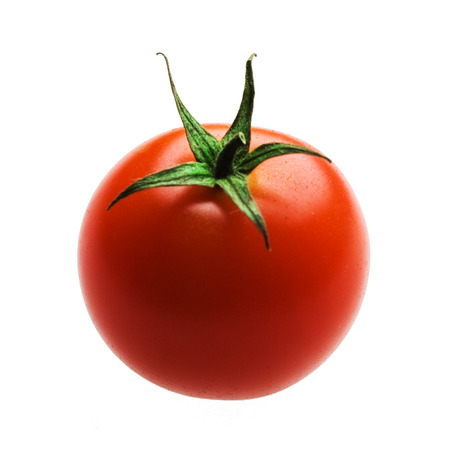
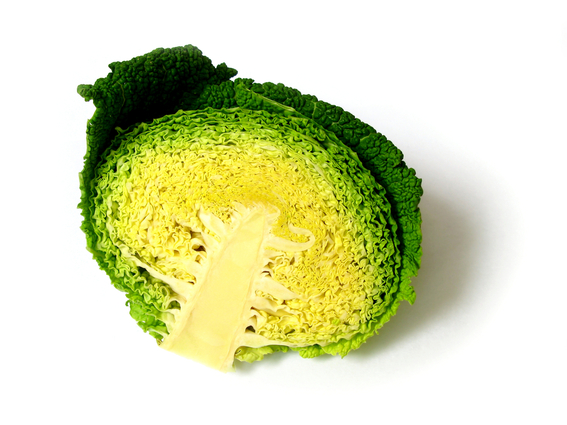
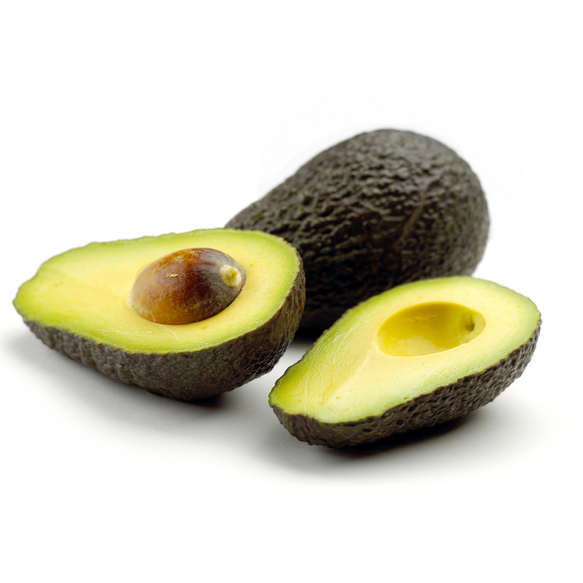
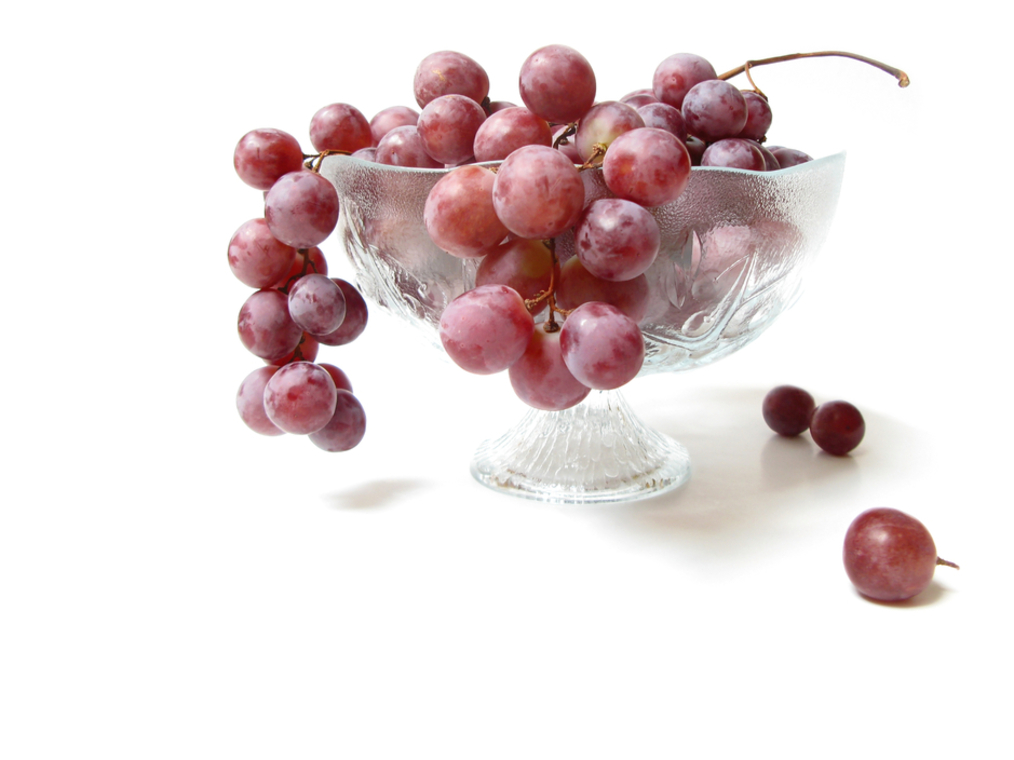
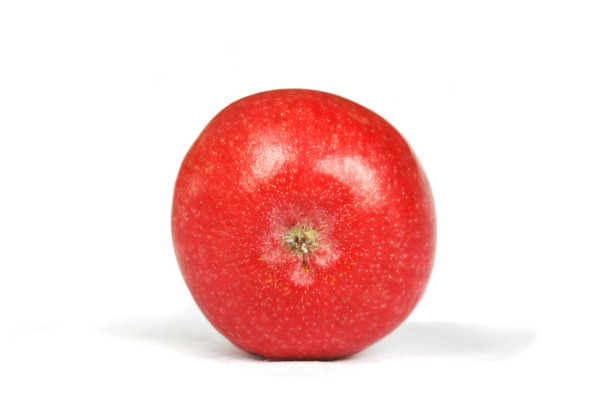
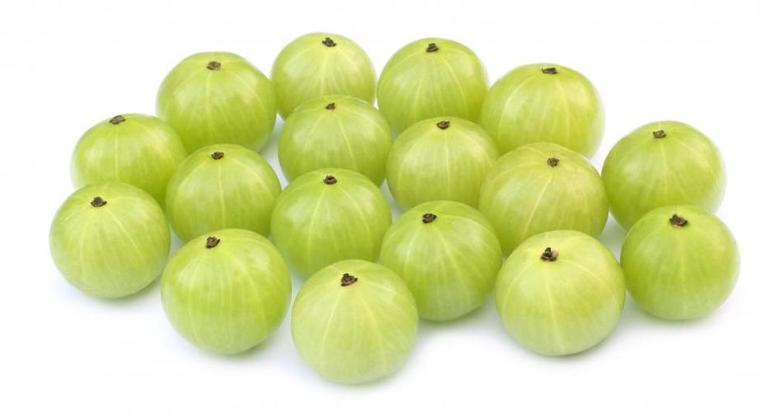
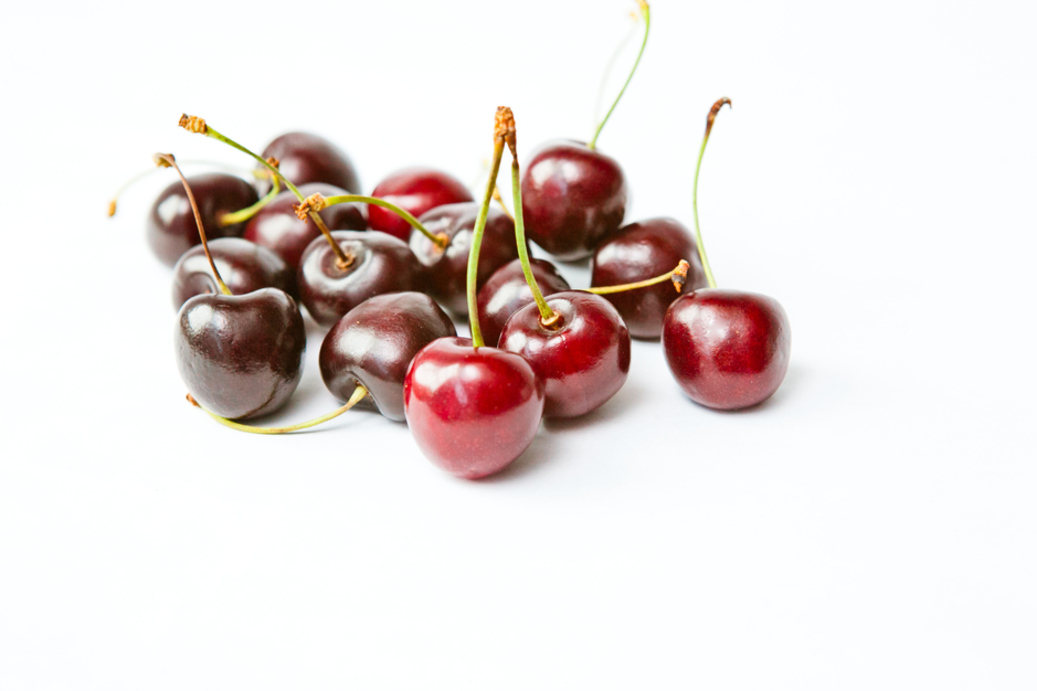
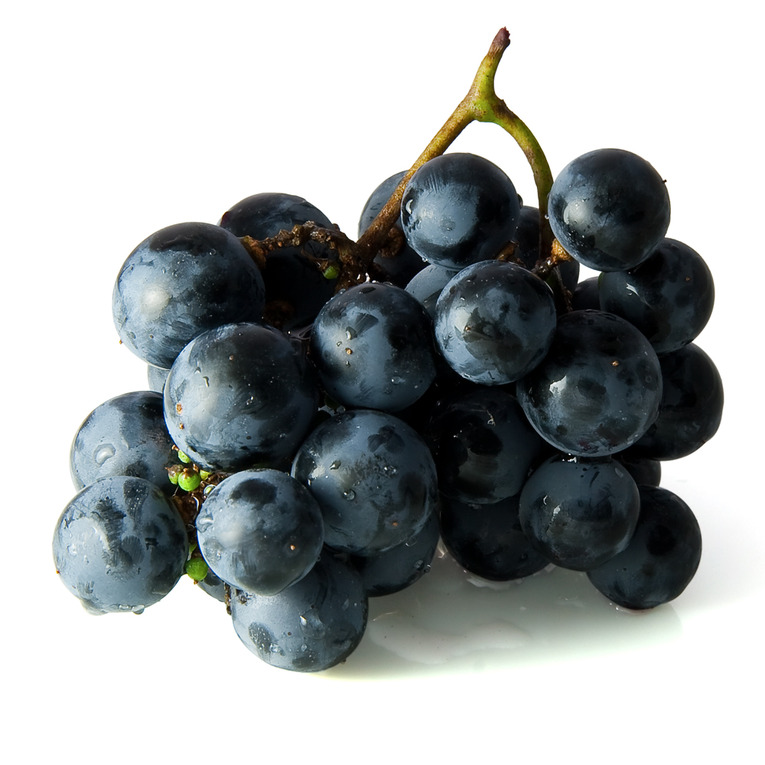
Be Smart